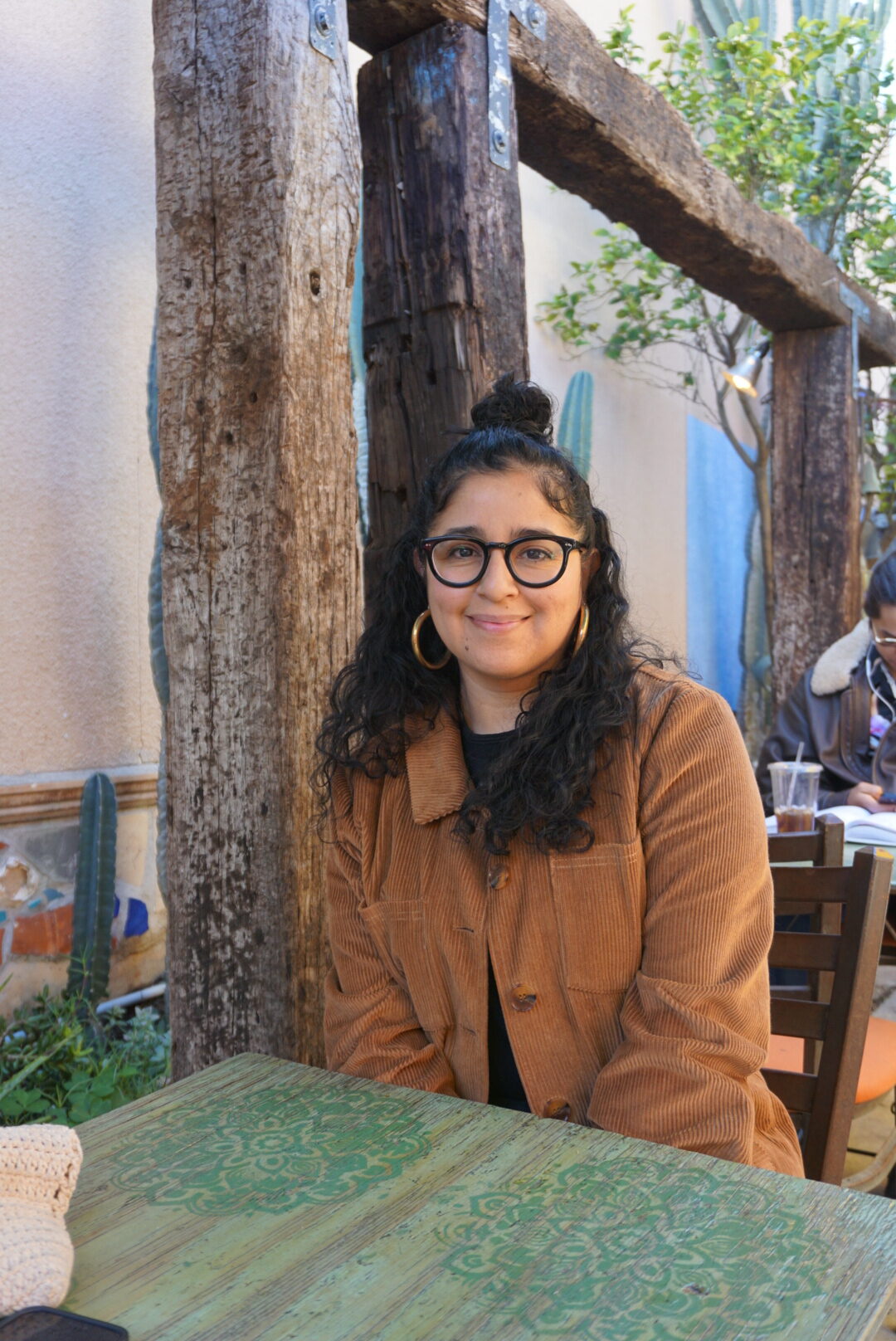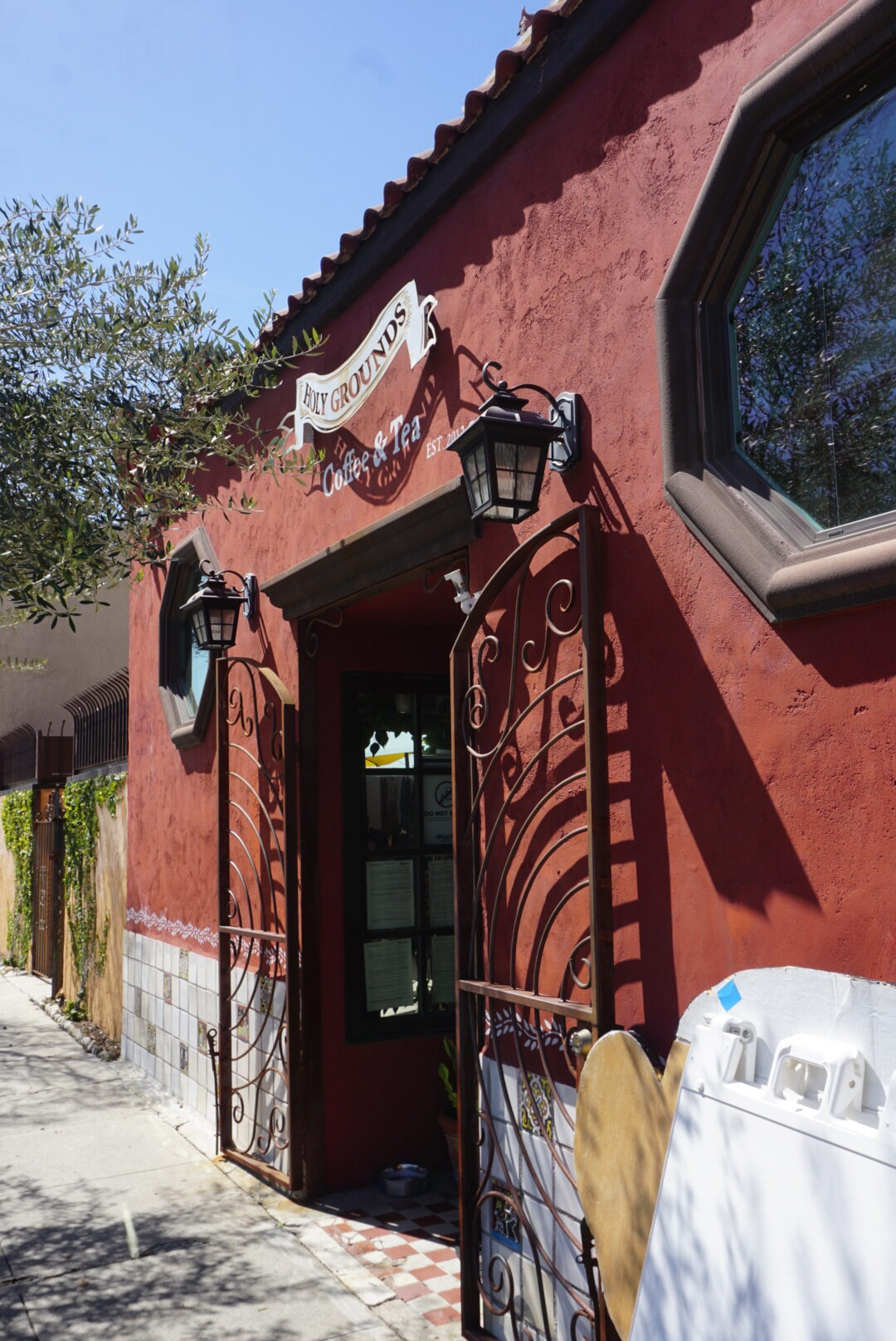by Alexis Marion
Alejandra Molina’s path to becoming a national reporter began at Pomona High School. Molina had just moved from El Monte to a new school in Pomona, her parents following their dream of finding a house to raise a family in. Molina wanted to make friends at her new school, this quest leading her to join the staff of the Red Express Newspaper. She became editor-in-chief of the paper her senior year, a role that grabbed the attention of her journalism teacher. Molina, being a first generation college student, found her teacher to be a useful mentor to her during the college application process. Molina explained that her teacher saw potential in her, taking her under her wing.
“Once she saw that I was really into journalism, she started telling me about potential opportunities that I could explore in college. She really helped me out with navigating the [application] process…and helping me find my scholarship opportunities like FAFSA,” Molina said.
Molina’s teacher researched journalism programs near the area and helped arrange a tour of the campus for Molina. She graduated from the University of La Verne in 2005. Her first professional experience in the industry was a full time reporting job for the Orange County Register after graduating. Molina explained that as an entry-level reporter, she was sent to many “sleepy” and affluent communities in Orange County.
“I was covering cities that I had never heard about like Rancho Santa Margarita, Laguna Hills and Lake Forest,” Molina said.
Molina compared these communities to the neighborhoods she grew up in South Los Angeles.
“It was kind of a culture shock learning about different issues that these affluent neighborhoods faced…so I was covering city hall, gated communities and homeowners associations,” Molina said.
Molina grew up on the cross streets of Florence and Holmes in South Central, her parents having moved there in the 80’s after immigrating from Mexico. Molina eventually moved on to reporting on law enforcement and breaking news in bigger cities like Anaheim and Santa Ana. During the summer of 2012 when Molina began this beat, two Latino men were killed by police during the time of the Anaheim riots. Molina was part of the team that helped cover these events and stationed at the neighborhoods where the shootings happened during the daytime to get a neighborhood reaction.
“There’s a deep divide as to what police say and what residents say, and that’s why it’s so important that one of the reporters here in the neighborhoods gets that other side of the story,” Molina said.
During Molina’s time at the Register, she would have to talk to residents of Anaheim and Santa Ana in the neighborhoods where crime broke out. She felt being Mexican-American made it a bit easier to approach people in some of the areas where she was reporting.
“I think it always helps when they see a face…I’m Mexican American so I’m not saying that that’s the sole reason that people trust you, but that’s like one way where they’re not completely taken aback by somebody just approaching [them],” Molina said.
Molina recalled times when she would be sent out to cover crime and breaking news, sometimes working with staff who she felt didn’t have a good understanding of the areas they covered. A specific time sticks with her when she was sent out with a photographer with the Register.
“I remember him saying, ‘Oh, not all reporters are comfortable going to ‘these neighborhoods’, and I was like, ‘what does that mean’? These neighborhoods are like the neighborhoods that I grew up in, so I didn’t think they were dangerous or anything,” Molina said.
These types of experiences gave Molina the drive to fight stereotypes regarding her culture and the areas she grew up in. She realized quickly after entering the industry that many news outlets let stereotypes lead their reporting in the communities she called home.
“I felt it right away when I started working in newsrooms that they didn’t really reflect the communities we covered,” Molina said.
Molina felt like she was one of the few in the newsrooms she worked in that knew how to accurately portray the stories of those growing up in the communities of Los Angeles that she was so familiar with. There were not a lot of other Latino journalists in the Orange County newsrooms that understood the importance of this. She noticed a lot of these newsrooms had improvements to be made regarding treatment of her culture and women.
“I would like to see [leadership] in newsrooms and journalists feel more comfortable talking about how much they get paid, so there won’t be any differences in pay among male or female journalists,” Molina said.
After working for a couple different publications in southern California, Molina participated in a journalism in residence fellowship at University of Southern California. During the year she spent there, she began to question her future in journalism.
“I was contemplating whether I should stay in journalism or not because I was in very toxic newsrooms in Orange County and Riverside, and I didn’t know if that’s something I wanted to go back to,” Molina shared.
“It was a really hard time for the Southern California News Group at that time and they had done away with my beat which was immigration, and I felt like it was a wrong decision. They had pretty much told me [they] wanted me to cover crops and breaking news, and to me that was kind of like a demotion because that’s the beat that I started off with,” Molina said.
Molina desired a newsroom that would allow her to use her passion for reporting while being able to cover the Latino community in an authentic way. While her journalism in residence program was in progress, she noticed a reporting position open up on a Slack channel she was a part of that shared journalism positions. The Religion News Service was looking for a national reporter at the time. Religion News Service doesn’t report on one single religion but rather about different religions across the country. Molina had heard of the news outlet before during her time of covering immigration, as she found religion often intertwined with that beat. She was hired at RNS in the fall of 2019.
“I was hired under this grant in partnership with the Associated Press…it was part of an effort to get the general audience of people to understand more about religion,” Molina said.
However, what caught Molina’s attention about the role was the opportunity she had seeked for so long: the opportunity to cover people from her background.
“What really enticed me was that they wanted somebody on the West Coast who’s familiar with Southern California, and somebody who doesn’t just cover religion, but has a focus on covering Latinos and spirituality,” Molina said.
But the outlet also gave Molina access to cover stories she may not have covered in the past. Molina does not identify with any kind of religion, which has given her the perfect opportunity to cover different religions across America.
“I am not a religious person so I’m very curious as to how people live out their faith and what their religion has to do with the way they act or vote,” Molina said.
She wanted to explore the impact of religion on someone’s daily life, moving past the popular way of covering religion: only covering the negative aspects of it.
“I just realized how poorly we were trained in newsrooms to cover religion…because if you did cover religion, it was always very reactive. If something bad happened concerning religion, we would cover it…it wasn’t the day to day coverage that gave a fuller picture,” Molina said.
Molina continues to be grateful for the opportunities her position brings, as it has given her the ability to enhance her stories by researching religion.
“I feel like there’s a stigma in newsrooms where you feel like you’re delegitimizing coverage by introducing religion into it…so once I started covering religion full time, I realized how much I actively avoided it in my coverage, and how much I missed out because I was doing that,” Molina explained.
One of the first stories Molina worked on for Religion News Service was based on a Pew Research Study showing Latinos were no longer majority Catholic in the United States.
“That was my first major piece and once the AP got it, it was published in every newspaper across the country. So that was one thing that helped me realize this is what I want to do more of”, Molina said.
Molina, who identifies as Mexican-American, grew up culturally Catholic but never practiced the religion much. She was baptized as an infant, took her first communion as a preteen and went to church on Sunday’s. However, Molina grew away from the church during her teen years, explaining that the Catholic faith is tied to her culture more than her actually having a connection with it.
“In my perspective, I just never felt like we were part of a community, like a church community…it always felt like a disconnect,” Molina said.
Alongside Molina’s lack of community within the Catholic church, she was also off-put by the lack of women leadership allowed. These aspects led Molina to stop attending church with her brothers in her older teen years while her mom and dad would still attend. She explained that although she wasn’t a practicing Catholic any longer, she still participated in many of the traditions the church held, as it was just a part of her culture.
“Growing up Mexican American, your Catholic faith is just tied to your culture…so we still celebrated Posada in December and would do the reenactments in the neighborhood of Jesus and Mary knocking on people’s doors, and the baby Jesus,” Molina said.
Even though Molina does not identify as Catholic, she explains she has a fascination with researching why some in her community choose to stay in the church.
“I want to understand how you balance those beliefs when you do or don’t have certain beliefs within the Catholic Church…I want to explore those nuances of being Latino and Catholic,” Molina said.
This desire has encouraged Molina to report religion in a way that better represents the Latino community. Her main goal continues to be finding the degree of variation of religions within the community.
“I am Mexican American, I am Latina…there’s these preconceived notions of what that is, and I am not those preconceived notions. So I want to help dispel those narratives and that’s how I approach covering Latinos within religion,” Molina said.
Molina is the only west coast reporter for Religion News Service, so a large amount of her stories cover Catholicism within the Latino community. She explained she wants to cover more of the minority religions in the area as well.
“I’m trying to do more Muslim related coverage and there’s also a big Jewish community in Los Angeles…Buddhism is something also [as] there are just so many temples in the area where I live,” Molina said.
Molina has been able to explore Latinos gravitating toward Islam, the growth of Hispanic Protestant churches, the influence of Pentecostalism on Mexican-Americans and so on. Molina has now been reporting for the Religion News Service for over three years and has been a mentor for over a year through Boyle Heights Beat, a nonprofit newsroom in Los Angeles that trains local high school students on how to cover news. Molina continues to report for Religion News Service on a daily basis and explore the changing faiths within the Latino community.



